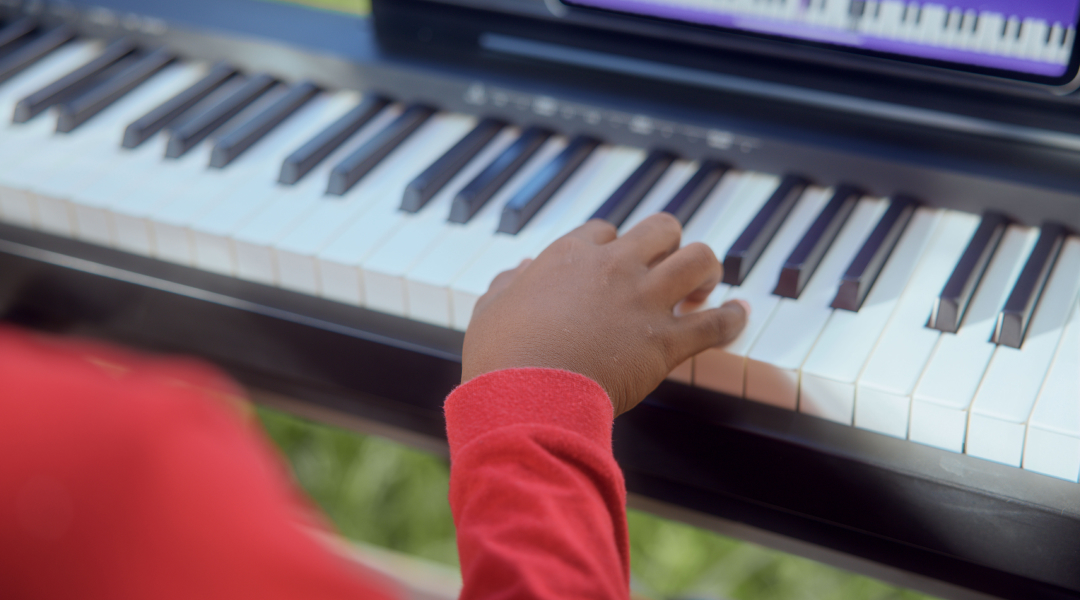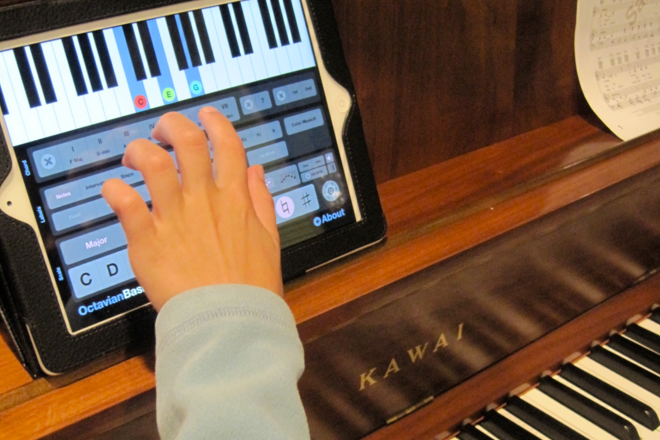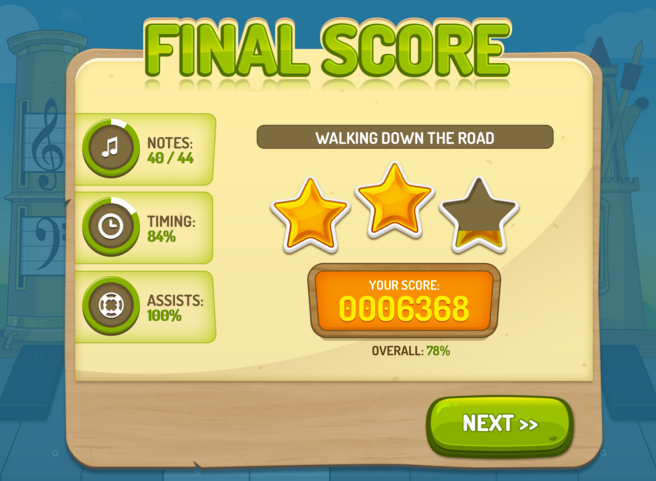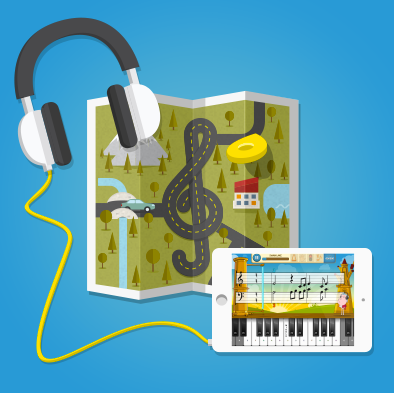Nine Unexpected Benefits of Playing Piano
Did you know that playing the piano improves your memory, focus, and concentration? Read this article to discover all the benefits of playing piano.
Playing the piano can be a rewarding experience. As you progress, you start playing beautiful music with accuracy and skill. But, the benefits of playing the piano can extend much further than playing lovely tunes on the ivories.
Music can benefit the mind and body and may even improve your health.
Here are some of the unexpected benefits of playing the piano.
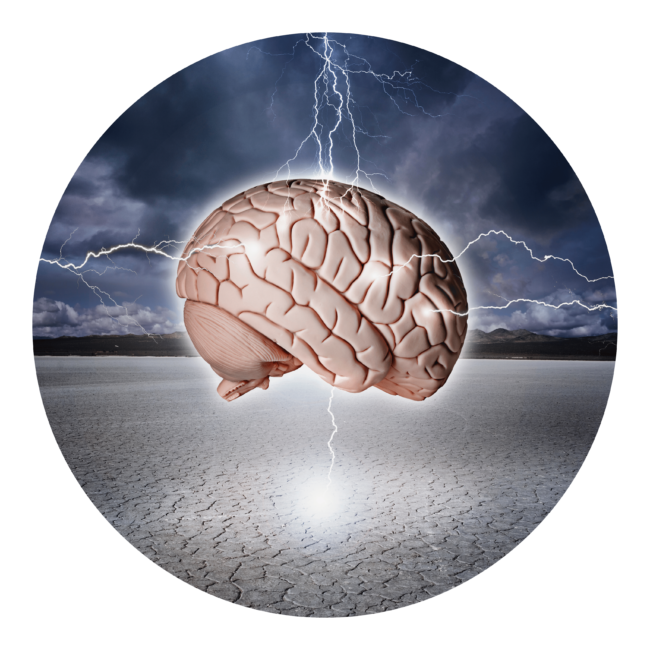
Stimulate the mind.
Did you know that nine brain areas activate when you play an instrument?
Maybe that’s why musicians always seem to be at the top of the crop regarding intellect. While intelligent people may naturally gravitate toward music, studies have shown that playing the piano benefits the mind.
Mental alertness
When you play the piano, both hands must coordinate. This split movement can be tricky at first, much like patting your head and rubbing your tummy. Your brain gets a mental workout as you increase speed and accuracy. This builds neural pathways that promote quick thinking at the piano and other areas of your life.
Stronger memory
As mental alertness increases for quick actions in the present, the production of new neurons can also help improve memory in the long term. Thirty-minute practice sessions may become repetitive when working up a new piece. However, this repetition builds your brain’s storage capacity as you work.
This can not only help you get your do-re-mi’s down pat, but it also can beef up your long-term memory. Some clinical studies even suggest that those who play music long-term have a lower risk of Alzheimer’s.
Clear communication
Music can cross cultural and language barriers to reveal deep emotions. Playing an instrument is communication without words and can help children excel in verbal language skills. Our ears are highly-tuned to the pitch and rhythm of the music.
These listening skills pay off when kids are learning words and building communication. Studies show that children in music classes understand language and communicate more clearly than their non-musical peers.
Also, if you want to learn a new language as an adult, playing the piano may help you reach your goal.

Improve the body.
Playing the piano is a workout for the mind but also the body. Sitting down to the keys and playing, you exercise muscles that often get overlooked in daily life. You can improve fine motor skills, hand-eye coordination, and dexterity as you practice daily at the keys, all while sitting down.
Muscle building
“As strong as a musician” is not a simile you will hear very often. Many pianists tend to have stronger arms than their peers. Choosing to play the piano alone won’t win you the top spot in a bodybuilding contest. Still, you can build muscles in your hands, arms, and abs.
Hand-eye coordination
When you improve your piano skills, you can go from playing one note at a time to playing several in each hand. Reading music with your eyes and responding with your hands can build excellent hand-eye coordination. You may find that this skill positively impacts other areas of your life, such as sports, computer work (or games), cooking, and more.
Motor skills
Playing the piano requires you to use fine motor skills. The intricate movement of your fingers from one key to the next builds dexterity. This type of exercise can be beneficial for children and the elderly.
For children, piano playing can build fine motor skills to help them dress independently, learn to write, and more. Playing the piano can prevent older people from losing crucial fine motor skills.

Benefit your health.
We keep the body healthy with good food and exercise. However, our mental health can also influence the health of the body. Playing the piano can benefit your mental and bodily health in unexpected ways.
Lower blood pressure
According to Harvard Medical School, playing music can reduce stress, decrease heart rate, and even lower blood pressure. Other studies show that simply listening to music can also be effective. This doesn’t mean you should replace your meds with a piano lesson. However, you can appreciate playing the piano even more knowing that it may be helping to keep your heart healthier. Check out Can Mozart Lower Blood Pressure for fun facts about music and the heart.
Better sleep quality
Music helps to calm activity in the sympathetic nervous system. This can lower anxiety and relax the muscles in the body. Playing the piano can also distract the mind from intrusive thoughts, making it easier for the mind to turn off for the night. Also, when you sleep well, your brain works to cement what you have learned during the day. So, playing the piano can help you sleep, and sleeping well can help you play better. Win-win!
Improve your mood
Playing the piano can reduce anxiety and relax the mind. It can create positive emotions by releasing serotonin and dopamine in the brain as you play. These neurotransmitters help reduce depression and help you feel happier overall. Many pianists and musicians report fewer feelings of anxiety and depression. You get good vibes when you sit down and give your all at the keys.
A new hobby with benefits.
While there is no promise that music is the magic pill to solve all your problems, studies indicate that playing the piano may benefit you in unforeseen ways. Many have returned from piano practice with a better body, mind, and health.
Whether you notice an increase in your IQ or you just find a new hobby to love, there is no better time than the present to start playing the piano.
To get started, you can download the Simply Piano app and enjoy a free trial. Learn some piano basics through the app, and get real-time feedback as you go.
Learning to play the piano can be challenging at first. But, your hard work will pay off if you keep at it. Who knows? It could just change your life.






